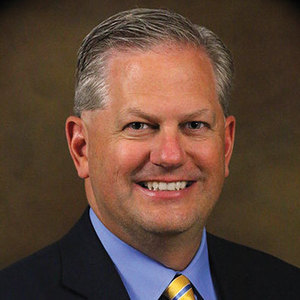A Vision for Biodiesel

December 31, 2019
BY Donnell Rehagen
Our theme this year for the National Biodiesel Conference & Expo is Vision 2020, and it is fitting for many reasons. First, it’s critical that any industry have a clear and complete vision of what it wants to accomplish. Taking a road trip without the benefit of knowing where you are going many times leads to wrong turns, backtracking and wasted time. NBB undertook a formal strategic planning process in the second half of 2019 to ask the tough questions, define the challenges and opportunities, and to lay out a roadmap to achieving those objectives over the next three to five years. So, our vision of the future is clearer and sharper, and it’s a future full of growth—but not without challenges.
The past several years have told us that the “brand awareness” of biodiesel and renewable diesel is not where we need it to be. Although the vast majority of respondents in our annual survey were aware of and supportive of biodiesel, the awareness of our products and how our industry works among our policymakers in D.C. and statehouses around the country is lagging. We saw this on display in 2019 as the Renewable Fuel Standard was under attack through the increased issuance of small refinery exemptions (SREs), and the tax credit was allowed to be expired for nearly two years. This demonstrates a lack of awareness of how those policies—individually and collectively—have come to drive our entire industry. We have to boldly attack that lack of awareness and apply resources to quickly educate policymakers above and beyond what we are already doing. Our industry cannot be a second thought to other alternatives and must take its rightful place as a significant economic and environmental influencer, and we must be recognized as an essential energy industry to support.
In 2019, NBB increased its collaboration with agricultural partners to amplify our messaging. It is critical to our industry success going forward that we continue to grow and expand our footprint by partnering with supporting industries. I want to thank our nation’s soybean farmers who answered our call to action to advocate for biodiesel, individually and collectively through their trade associations.
We are truly stronger together. The voices of our opposition are strong and well-entrenched, and we will have to step up our game even more to keep our messaging clear and consistent.
Speaking of messaging, we all know how succinct a message must be for people to remember it.
Nike’s Just Do It campaign is an example of a short verse that can be interpreted in many different ways and makes the listener think. For biodiesel, we are launching our new tag line to help with future messaging: Biodiesel. Better. Cleaner. Now! Biodiesel is here now—it’s not a fuel to be discovered in the future. So, expect to see more of this messaging coming in 2020 and beyond as we try to simplify the many reasons that biodiesel deserves support and should be viewed as the fuel of choice for diesel platforms. We welcome your use of this messaging in your day-to-day communications as we work to improve and reshape the way Americans view biodiesel.
I look upon this past year and am in awe of each of your efforts and commitments to America’s advanced biofuel. I ask that you stick with us and join us in raising your voice to share biodiesel’s powerful, impactful story throughout this coming season. NBB is your business partner and we look forward to working alongside you to grow our brand, grow our demand, and expand on the many marvelous aspects of the best fuel on the planet—and the best fuel for the planet.
Donnell Rehagen
CEO
National Biodiesel Board
Advertisement
Advertisement
Advertisement
Advertisement
Related Stories
Marathon Petroleum Corp. on Aug. 5 released second quarter financial results, reporting improved EBITDA for its renewable diesel segment. The company primarily attributed the improvement to increased utilization and higher margins.
Chevron Corp. on Aug. 1 confirmed the company started production at the Geismar renewable diesel plant in Louisiana during the second quarter after completing work to expand plant capacity from 7,000 to 22,000 barrels per day.
California’s new specified source feedstock attestation requirement: A critical new compliance step for renewable fuel producers
As of July 2025, California’s SCFS requires renewable fuel producers using specified source feedstocks to secure attestation letters reaching back to the point of origin. This marks a significant shift in compliance expectations.
The public comment period on the U.S. EPA’s proposed rule to set 2026 and 2027 RFS RVOs and revise RFS regulations closed Aug. 8. Biofuel groups have largely expressed support for the proposal but also outlined several ways to improve the rulemaking.
The U.S. renewable fuels industry on Aug. 8 celebrated the 20th anniversary of the Renewable Fuel Standard. Federal lawmakers also marked the occasion with resolutions introduced in the House and Senate earlier this month.
Upcoming Events










